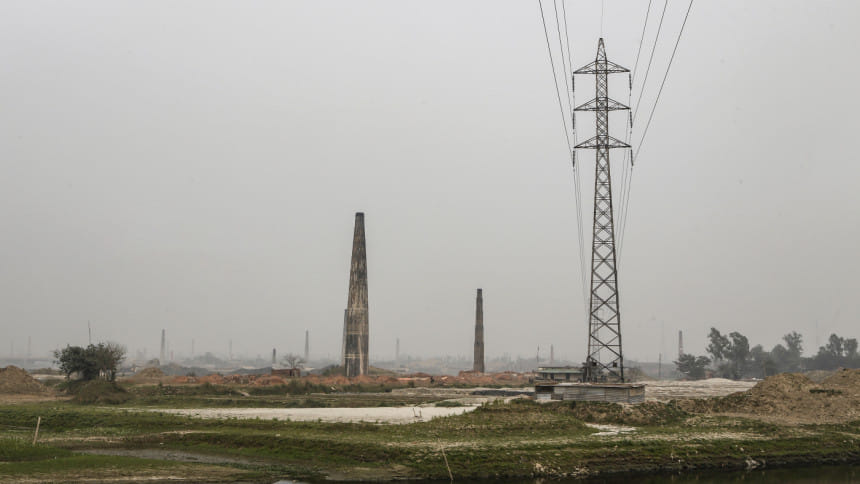The perils of climate alarmism

Around 3 PM on August 19, 2019, the residents of São Paulo witnessed the sky go dark. This was not the Day of Judgement, as many of the city's devout Catholics feared. Rather, this was the result of black plumes of smoke from the Amazon Rainforest where approximately 10,000 forest fires were burning that day.
It is difficult to look at the apocalyptic images from Brazil or feel the blistering heat of Dhaka city and not find ourselves drowning in existential dread about climate change. But this begs the question – to what extent should we be worried, and is climate alarmism really the most productive way to go about it?
The fundamental problem with climate alarmism is that people have an aversion towards negativity. We dislike being perpetually consumed by pessimistic thoughts, especially those concerning the destruction of our species. Human beings also have a limited capacity to empathise and care about certain issues, being constantly told the world is ending only leads to overall desensitisation.
In the end, the likely result isn't awareness and increased climate action, it is mass apathy. This is why so many people, including the youth, prefer to disengage from the climate change conversation altogether, choosing to live in denial.
"Why bother recycling if the world is going to end no matter what?"
The opposite is also true where many people end up with debilitating anxiety surrounding climate doom.
Climate alarmism can cause further complacency because it sets up an unrealistically morbid expectation of climate change. When people are told the apocalypse is coming, they expect a scene out of a science fiction movie. However, the effects of climate change, while devastating, fall just short of outright dystopian. Thus, it often leads to people dismissing the threat of climate change altogether, perpetuating the cycle of devastating consequences and inaction.
A 2022 survey conducted by the Yale Program on Climate Change Communication provides evidence for these phenomena. According to the survey, around 10 percent of Americans feel anxious, 9 percent experience uncontrollable worry, and 7 percent report reduced interest and satisfaction in normal activities due to climate change. On the other hand, 27 percent say they avoid thinking about it believing it to be a hoax or a waste of time.
Therefore, it might be more productive to adopt a conservatively optimistic mind-set about climate change. That is to say, a healthy level of concern is definitely important but slipping into paranoia or apathy is unwise. Of course, this is easier said than done given our social media newsfeeds are perpetually plastered with terrifying statistics about rising sea levels and deadlines on when it may be too late to do anything about it.
However, we could mitigate the impact they have on us by minimising social media usage or unfollowing specific content that cause us distress. Moreover, taking personal initiatives like volunteering in environmental charities or recycling could also be ways to alleviate our stress by trying to be part of the solution. In the end, climate alarmism is a counter-productive mind-set that further exacerbates the climate change crisis.
References:
1. Yale Program on Climate Change Communication (February 16, 2023). Climate Change in the American Mind: Beliefs & Attitudes.
2. World Health Organisation (April 12, 2023). WHO Coronavirus (COVID- 19) Dashboard.
3. The Washington Post (August 20, 2019). Smoke plunges Sao Paulo into sudden darkness, baffling the Western Hemisphere's largest city.
Robiah is crumbling under the despair of university rejections. Send him therapeutic cat memes at [email protected].

 For all latest news, follow The Daily Star's Google News channel.
For all latest news, follow The Daily Star's Google News channel. 








Comments